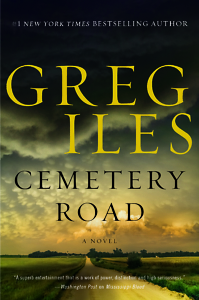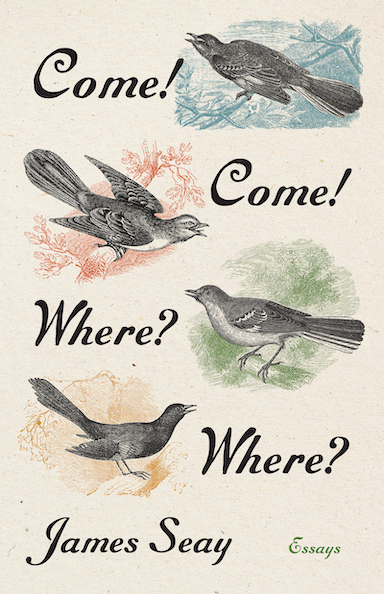The Past Matters
A small-town murder in Greg Iles’s Cemetery Road exhumes long-buried secrets
Greg Iles’s Cemetery Road begins with a murder, but few in the town of Bienville, Mississippi, care who did it. The victim, a local archaeologist named Buck Ferris, was snooping around the site where a Chinese corporation plans to build a new paper-manufacturing plant, a development that will pump a billion dollars into the struggling local economy. If Ferris had discovered the remains of an ancient Native American culture—or, worse, skeletal human remains—the entire project might have been scuttled, leaving the town to ruination.

Townsfolk are sorry to hear that Ferris has died but nevertheless express ruthless pragmatism about moving forward. “We don’t need that crank screwing up this China deal,” one of them says. “I don’t care if the damned Indians raised the dead on this ground we’re standing on. Their time’s done. This is survival.”
Marshall McEwan knows better than to believe the official investigation’s conclusion that Ferris simply fell and struck his head on a rock. The son of Duncan McEwan, the town’s newspaper publisher, and a Pulitzer-winning journalist in his own right, Marshall has recently returned to Bienville to help care for his father. Though he left town thirty years earlier to pursue a career in Washington, Marshall still knows the cabal of power brokers who have the motive and resources to pull off this crime and to cover it up. He is driven for personal reasons to expose the murder plot: Buck Ferris became a second father to him after the drowning death of Marshall’s older brother, Adam, a tragedy that turned Duncan McEwan’s heart to ice.
If that sounds like a complex web of greed, love, and violence, wait till you turn the page—Iles is just getting started.
In his efforts to untangle the conspiracy, Marshall joins forces, in a manner of speaking, with his first love, who is now an attorney inconveniently married to his high-school friend Paul Matheson. A scion of Bienville’s plutocracy, Paul is a former soldier who once saved Marshall’s life. Marshall feels guilty about betraying his old friend, a heavy drinker who struggles to suppress pent-up rage, but the Matheson he should be keeping his eyes on is Paul’s father. Max Matheson is a Vietnam vet who views every endeavor as jungle warfare.
 Marshall narrates his own investigation and its fallout in the present tense and regularly flashes back to traumatic scenes from his tumultuous adolescence and unhappy marriage. Iles occasionally slows the pace of the action to describe Bienville’s tortured history and complex sociology. To understand the town’s racial divisions and its economic desperation, one must look to its past. “River towns” like Bienville, he writes, “have changed so little over time that if you resurrected a citizen who lived in the 1840s, they would still recognize the streets they once walked.”
Marshall narrates his own investigation and its fallout in the present tense and regularly flashes back to traumatic scenes from his tumultuous adolescence and unhappy marriage. Iles occasionally slows the pace of the action to describe Bienville’s tortured history and complex sociology. To understand the town’s racial divisions and its economic desperation, one must look to its past. “River towns” like Bienville, he writes, “have changed so little over time that if you resurrected a citizen who lived in the 1840s, they would still recognize the streets they once walked.”
“The past matters,” one character says. “Even if people don’t realize it. You’d think Southerners would get that.”
Cemetery Road seems never to drift far from the Mississippi River itself, “this slow juggernaut of water,” which to Marshall is “a force that tugged at me like spiritual gravity.” That’s where Ferris’s body is discovered, wedged into the branches of a downed tree. Marshall’s brother Adam was swallowed by it, the result of a late-night dare when drunk teenagers underestimate the river’s relentless current. Marshall avoids looking at “the big water,” but now he must explore its muddy banks to achieve a final reckoning. It won’t be easy: “A lot of people are drowned in the Mississippi, and while most are eventually recovered, there are times when the river god refuses to give up his dead.”
Marshall’s family offers a microcosm of the town’s history of violence: three generations of McEwans suffer fatal accidents, forming a pattern that to Marshall feels like a primal curse. Cemetery Road is packed with stories that tap into classical tropes. Oedipal struggles proliferate. Wives seek vicious revenge in the manner of Clytemnestra. Sworn blood brothers turn on each other like Cain and Abel. Star-crossed lovers pursue desperate measures to escape familial rivalries. Iles, who has written fifteen bestsellers in two decades, clearly has access to a deep literary well that shows no signs of drying up.
Cemetery Road also pays homage to independent bookstores in its portrayal of Nadine Sullivan, “one of the first to recognize the genius of Jesmyn Ward,” among others. Nadine’s store features photos of Southern literary fixtures like Rick Bragg, John Grisham, Pat Conroy, and Donna Tartt. With novels like this one and the trilogy that began with 2014’s Natchez Burning, Iles may find his own portrait hanging in that gallery soon.

Sean Kinch grew up in Austin and attended Stanford. He earned a Ph.D. from the University of Texas. He now teaches English at Montgomery Bell Academy in Nashville.


